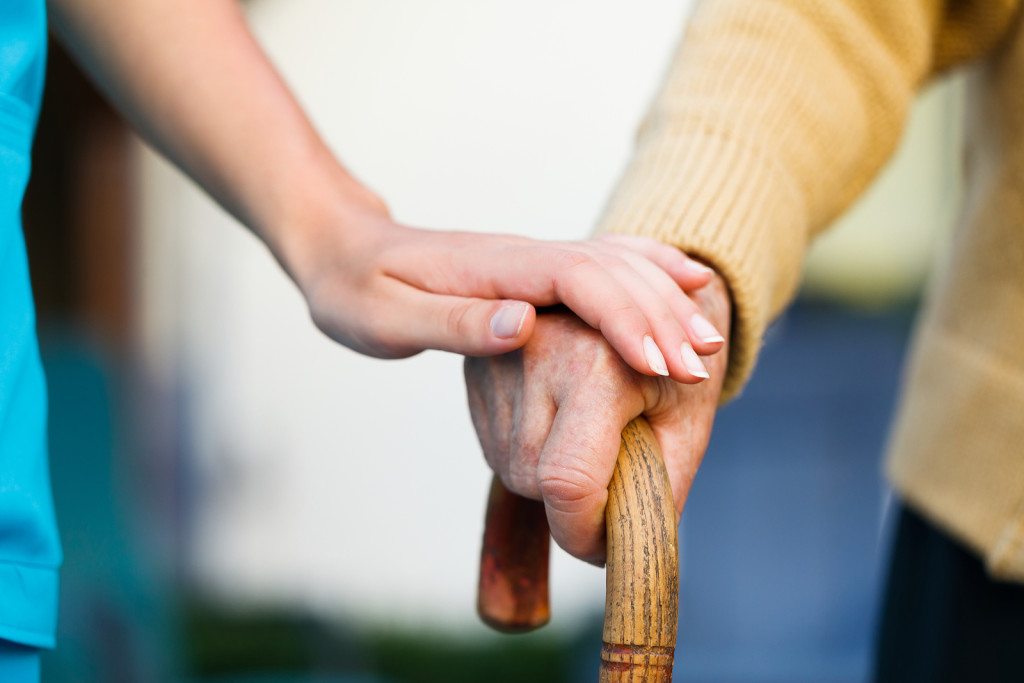Bedsores, which are also called pressure ulcers or decubitus ulcers, are a common health problem among residents in nursing homes across Pennsylvania and the nation. Philadelphia nursing home abuse lawyer Brent Wieand explains what causes bedsores, how to check a specific nursing home’s history of bedsores among residents, and what to do if you suspect that your elderly parent or grandparent is being abused or neglected at by nursing home staff members.

All tissue needs a steady supply of fresh oxygen in order to maintain function and stay healthy. For example, deprivation of oxygen to the brain can result in a condition known as cerebral hypoxia, which can cause permanent damage or wrongful death if not treated swiftly and lead to the need for a PA nursing home law firm to talk with a nursing home lawyer in Philadelphia, PA.
Though considerably less fragile than the brain, the skin and underlying tissue can also be badly damaged by a prolonged lack of oxygen. Over a period of weeks or months, oxygen deprivation can cause the victim to develop painful, raw, weeping sores that can easily become infected.
The question is, why does oxygen deprivation occur? Unfortunately, the answer is typically inadequate care. If nursing home staff members regularly help residents ambulate, change their linens, and reposition them in bed, bedsores do not have a chance to develop. If bedsores are present, it typically means that the victim has been lying in the same position for an extended period of time, which indicates neglect of the resident.

Medicare Nursing Home Compare, an online database maintained by the Centers for Medicare & Medicaid Services, is a subject I have written about in the past. I mention it here because, in addition to rating nursing homes, Medicare Compare also features information about bedsores at each facility, including:
In either case, you want to look for the lowest percentage possible. Ideally, this percentage will be even lower than the state and national averages, which are also included in the data.
Let’s use Ivy Hill Rehabilitation and Nursing Center, a one-star rated nursing home located in Philadelphia, as an example. At Ivy Hill, the percentage of short-stay residents with pressure ulcers that are new or worsened is 1.4%, which is slightly higher (worse) than the Pennsylvania average (1.2%) and national average (also 1.2%) for this category. At the same facility, the percentage of long-stay high-risk residents with pressure ulcers is 5.6%, which is slightly higher than the Pennsylvania and national averages: 5.1% and 5.7%, respectively.
Medford Care Center is a five-star rated nursing home with located in Medford, New Jersey. At this facility, the percentage of short-stay residents with pressure ulcers that are new or worsened is just 0.4%, which is substantially lower (better) than the 1.1% New Jersey average and 1.2% national average. At 4.3%, the percentage of long-stay high-risk residents with pressure ulcers is also better than the New Jersey average (6.5%) and national average (5.7%).
You may have noticed that New Jersey and Pennsylvania have nearly identical bedsore incidence among short-stay residents: 1.1% and 1.2%, respectively. However, New Jersey performs significantly worse than Pennsylvania when it comes to preventing bedsores in long-term residents. 6.5% of New Jersey long-term residents develop bedsores, as compared to 5.1% of long-term residents in Pennsylvania.
Based on this factor, your knee-jerk reaction might be to exclude New Jersey facilities from your consideration. However, it is never a good idea to rely purely on statistics. Only by visiting a facility in person, in addition to researching its history, will you be able to get a true feel for the attitudes among staff members, the physical condition of the building, and the quality of life among its residents.
Moreover, bedsores are not the only factor you should assess when evaluating potential nursing homes for a loved one. You should also consider the incidence rates of other violations and health issues among residents, such as:
Fortunately, you can find information about all of these topics on the Medicare Compare website. To check the information for a specific facility, simply click on its name, then click the “Quality Measures” tab, and scroll down to expand the sections for short- and/or long-stay residents. You will find data about pressure ulcers when you expand these sections.
If your loved one has developed a bedsore at his or her nursing home, you should be on high alert and start considering PA nursing home lawyers. Unfortunately, your family member may be a victim of negligence.
If you’re worried that a relative is being abused or neglected at a nursing home in Pennsylvania or New Jersey, don’t wait until your suspicions are confirmed. By then, it may be too late. Contact an experienced Camden County nursing home abuse attorney, like Brent Wieand, right away. It may turn out to be a false alarm – but if not, you may be saving your loved one’s life. For a free, completely confidential legal consultation with a nursing home bedsore lawyer or nursing home abuse lawyer in Philadelphia, PA, call the Wieand Law Firm, LLC at (888) 789-3161 today.
*Disclaimer: This article is for informational purposes. It is not legal advice and should not be used as legal advice. The Wieand Law Firm, LLC is based in Philadelphia, PA, and proud to serve clients throughout Pennsylvania and New Jersey.*